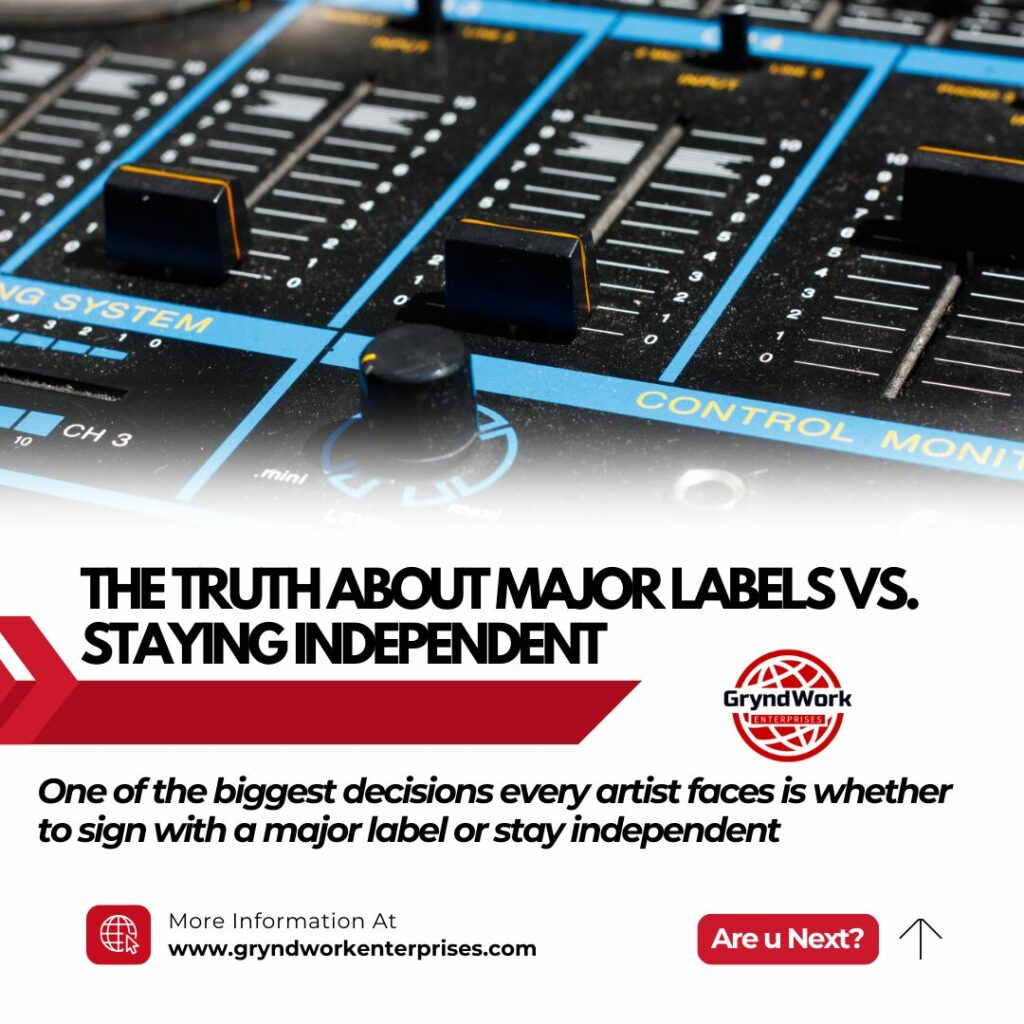
One of the biggest decisions every artist faces is whether to sign with a major label or stay independent. Both paths have their pros and cons, and the right choice depends on your goals, resources, and willingness to take control of your career. Let’s break it down.
Major Labels: The Traditional Route
Signing to a major label (like Universal, Sony, or Warner) has been the dream for many artists, but is it really the golden ticket? Here’s what you get and what it costs:
✅ Advantages:
- Massive Financial Backing – Labels invest in recording, marketing, and touring.
- Global Distribution & Exposure – Your music gets pushed to mainstream platforms and media.
- Industry Connections – Access to top producers, writers, and feature opportunities.
- Radio & Playlist Placement – Major labels have direct influence over major playlists and radio stations.
❌ Disadvantages:
- Loss of Creative Control – Labels often dictate your sound, image, and release schedule.
- Long-Term Contracts – Many artists get stuck in restrictive deals that favor the label.
- Earnings Cut – Labels take a huge percentage of your royalties, merch, and tour revenue.
- Recoupment Clauses – Advances aren’t free money; labels recoup their investment before you see a dime.
Staying Independent: The DIY Approach
Independent artists are proving every day that success is possible without a major label. Thanks to technology and social media, artists have more control than ever before.
✅ Advantages:
- Full Creative Control – You make all the decisions on your sound, image, and release schedule.
- Keep More Profits – You own your masters and earn 100% of your streaming, sales, and merch revenue.
- Direct Fan Connection – You can build a loyal fanbase without industry middlemen.
- Flexible Business Models – You choose whether to stay independent forever or sign later on your terms.
❌ Disadvantages:
- Limited Upfront Budget – Without a label’s backing, you fund your own music, marketing, and touring.
- No Industry Co-Sign – Some opportunities (radio, major playlists) are harder to access without label connections.
- More Responsibilities – As an indie artist, you’re not just a musician—you’re also a marketer, manager, and entrepreneur.
The Hybrid Model: Best of Both Worlds?
Many artists today are choosing a hybrid approach, partnering with distributors and independent labels while maintaining ownership. Companies like Empire, UnitedMasters, and TuneCore offer artists label-like support without giving up their masters.
Final Thoughts: Which Path is Right for You?
The best route depends on your goals:
- If you want quick fame, mainstream radio play, and don’t mind sacrificing control, a major label might be for you.
- If you value creative freedom, long-term ownership, and want to build your career on your own terms, staying independent is likely the better path.
- If you’re looking for a balance of both worlds, consider a distribution deal or joint venture that allows you to stay in control while benefiting from industry resources.
